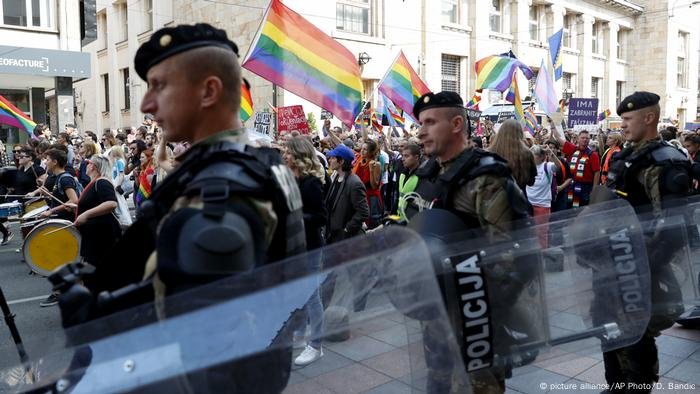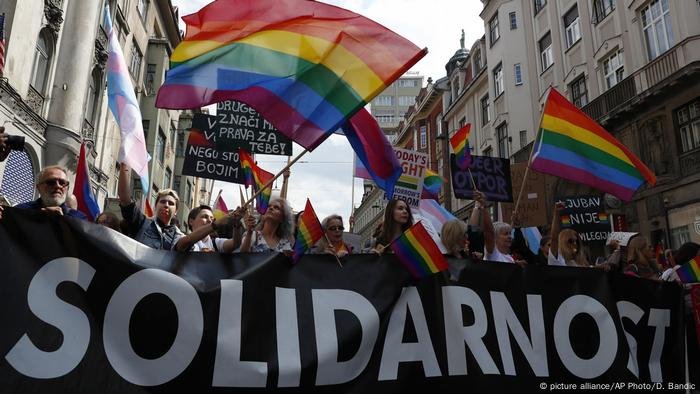BOSNIA and HERZEGOVINA: Sarajevo hosts landmark gay pride parade
(DW)
Hundreds of people in Sarajevo on Sunday defied threats of violence to march, sing and wave rainbow flags in the first gay pride event in the predominately Muslim city, with about 1,000 police officers deployed along the parade route.
Bosnia is the last of the countries of former Yugoslavia to hold a pride event. Many lesbian, gay, bisexual and transgender (LGBT) people, along with their families and friends, hope the event will help put an end to discrimination against LGBT people in the city.
Today is the day for Bosnia to get its first Pride march. Proud for all of those who will walk the streets of Sarajevo, LGBT folks and allies alike. To those opposing, remember that this is about love you tend to ignore at best and oppress at worst. That’s why #imaizać ️ ️ ️
— Aleksandar Brezar (@brezaleksandar) September 8, 2019
Lejla Huremagic, who helped organize the event, said its message was one of solidarity and support for a society without the violence and discrimination that she said LGBT people face in Bosnia.
“If there was no violence I wouldn’t be here today,” she said in a speech. “This gives us strength and faith that prejudice against us will start to wane and that it will become better for all of us.”
Values test
Ambassadors from the US and other Western countries took part in the march. The event has been seen as a test of whether the country can embrace values that could enable the membership in the European Union to which it aspires.
Two days before the event, the Council of Europe’s commissioner for human rights called on Bosnian authorities to ensure the march could take place in safety.
No violent incidents were reported connected with the march. Two queer events in Sarajevo have come under attack from extremists and hooligans in the past.
Read more: Gays in Bosnia still living life in the closet

Counterprotests
About a mile from the parade route, dozens of followers of a conservative Islamic group earlier held a rally against Sunday’s event. They described the pride march as a “sin” and “humiliation” for Sarajevo.
Another protesting group — the Svjetlost (Light) — called on people to rally against “un-values propagated by the LGBT community.

Bosnia is a deeply conservative country where Muslim Bosniaks, Orthodox Serbs and Catholic Croats maintain an uneasy peace, 24 years after Yugoslavia’s civil war ended with an effective partition of Bosnia along ethnic lines.
LGBT people in Bosnia complain about widespread harassment and attacks that are rarely prosecuted.

